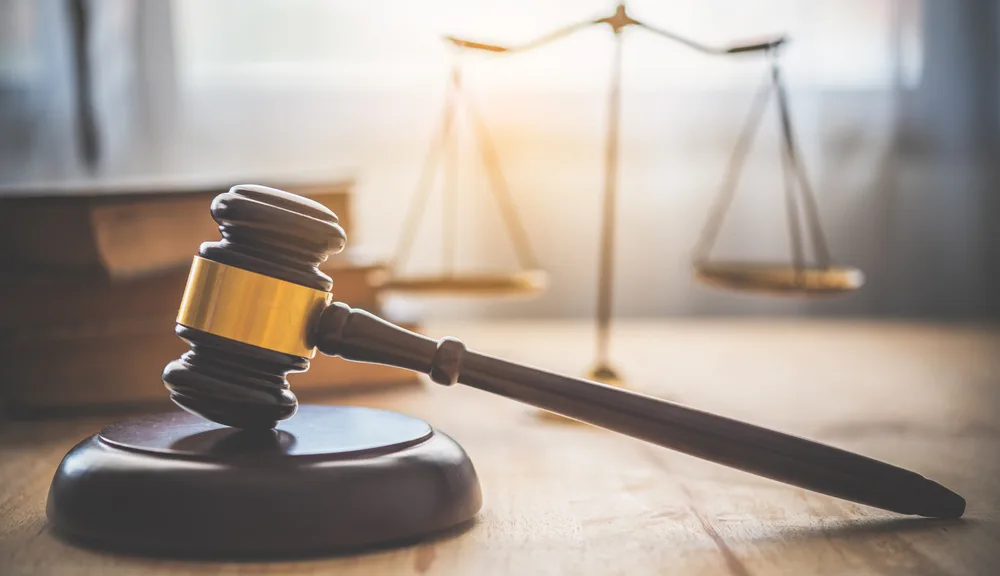Having to deal with the judicial system is never easy. There are many different types of court systems in place, and you may not be sure what to expect depending on the details of your case. With this in mind, we have gone into further detail to explain how the Texas judicial system works below.
If you have additional questions about your civil claim, our team at Loncar Lyon Jenkins could help you get through your complex legal matter. Contact our office for a free consultation today.
Types of Courts in the Texas Judicial System
The Texas judicial system features five layers of courts and a divided court of appeals that separates criminal and civil appeals.
Justice of the Peace Court
The lowest court in this bifurcated appellate system is the Justice of the Peace Court or JP court.
A Texas JP court handles criminal misdemeanors “punishable by fine only” and civil matters where the “amount in controversy is $10,000 or less.”
The Texas legislature has also extended the reach and influence of JP courts to hear cases involving eviction, foreclosures, and liens against personal property that fall under the $10,000 cap.
City Courts
Municipal courts (City courts) also share jurisdiction with JP courts in misdemeanor cases. Municipal courts and JP courts have sole jurisdiction over cases involving city ordinances. They also preside over cases relating to public safety.
County Courts
County courts hear appeals from JP and municipal courts. These courts also hear probate cases in Bexar, Collin, Dallas, Denton, El Paso, Galveston, Harris, Hidalgo, Tarrant, and Travis counties.
Texas county courts can hear both civil and criminal cases, although some counties create separate courts for civil and criminal matters.
District Courts
District courts hear felony cases, real estate and land title cases, and election contest cases. These courts are the trial courts at the state level.
Appellate Courts
Fourteen appellate courts in Houston, Fort Worth, Austin, San Antonio, Dallas, Texarkana, Amarillo, El Paso, Beaumont, Waco, Eastland, Tyler, and Corpus Christi are district courts that can hear family law and probate matters.
Only the Texas Court of Criminal Appeals is the highest criminal court in Texas.
The Texas Court of Criminal Appeals hears all appeals of death penalty cases and criminal cases decided at the 14 mid-level appellate courts in the state.
Texas Court of Criminal Appeals has eight justices and one presiding justice who are elected to six-year terms.
The Texas Supreme Court
The Texas Supreme Court is the highest appellate civil litigation court in Texas. Set at the State Capital, the Court panel consists of a chief justice and eight justices who are elected statewide to staggered six-year terms.
The governor may also appoint justices temporarily to fill vacancies. Appointed justices may serve out the unexpired term but must first be confirmed by the Texas Senate.
The Texas Supreme Court also has authority in addition to litigation, according to the TSC Web site: “By statute the Court has administrative control over the State Bar of Texas. Tex. Gov’t Code § 81.011.”
The Court is also the sole authority for licensing attorneys in Texas and appoints the members of the Board of Law Examiners, which administers the Texas bar examination.
Juvenile Courts
Texas is one of the few states across the country that does not typically have a system of juvenile courts. However, some of the more populous counties have their cases heard by county judges or district judges designated to hear juvenile cases. These might include criminal proceedings brought against minors between the ages of 10 and 16. The Texas Family Code defines their conduct. These crimes could include underage drunk driving, vandalism, theft, and other minor offenses.
Types of Cases the Judicial System in Texas will Hear
The Texas judicial system hears a variety of types of cases. They are often classified as being either criminal, civil, or special. Here is more information about each of these different types of Texas judicial system cases.
Criminal Cases
When someone is charged with committing a criminal offense, their case will be heard in criminal court. Criminal offenses can include misdemeanors or felonies. Some of the more common criminal cases heard in the Texas judicial system include:
- Drunk driving
- Murder
- Intoxication assault
- Intoxication manslaughter
- Assault
- Theft
- Domestic violence
- Manslaughter
- Sex crimes
- Drug crimes
- White-collar crimes
Individuals convicted of misdemeanor offenses could spend time in local jails, whereas individuals convicted of a felony may be sentenced to time in state prison. Other penalties people convicted of misdemeanors or felonies could face include:
- Community service
- Fines and restitution
- Completion of a drug or alcohol treatment program
- Installation of an ignition interlock device (IID)
- License suspension or revocation
Civil Cases
When an individual or entity is responsible for causing financial, physical, or emotional distress to another, the victim may have the right to financial compensation. They have the opportunity to pursue their case in civil court. Here, the plaintiff will file a claim against the defendant seeking compensation for their damages.
Special Cases
There are several types of cases that may not be considered criminal or civil under Texas law. This includes cases involving juveniles and probate court cases.
Get Help Navigating the Judicial System in Texas by Contacting our Law Firm Today
When your case needs to be heard within the Texas judicial system, and you are unsure where to turn for help, reach out to our dedicated personal injury attorneys at Loncar Lyon Jenkins.
Our firm proudly offers no-cost, risk-free consultations to residents across Texas. Take advantage of this opportunity when you call our office or complete our online contact form to get started on your case.


